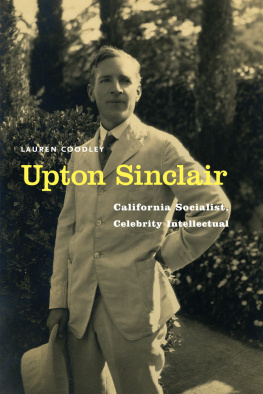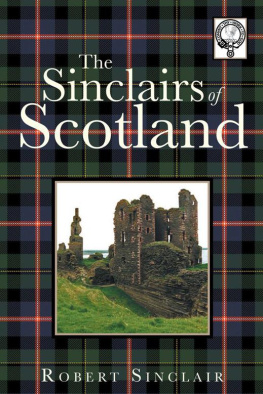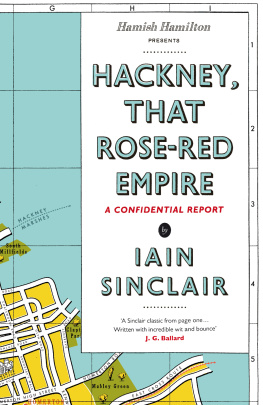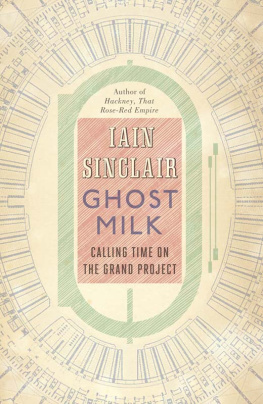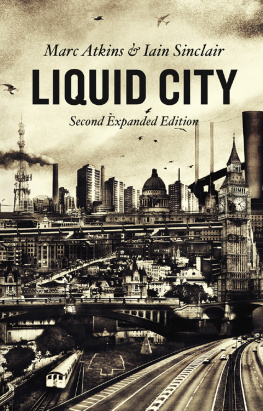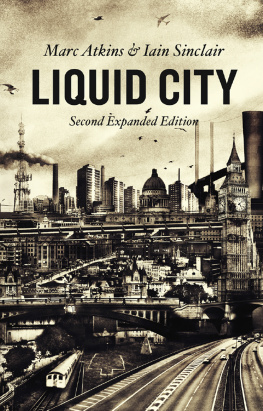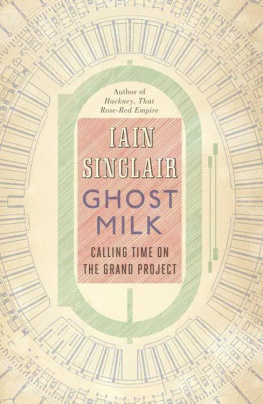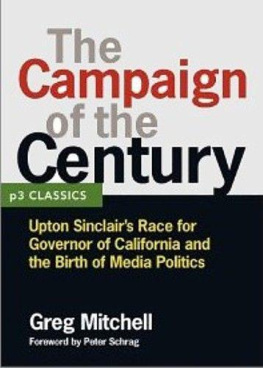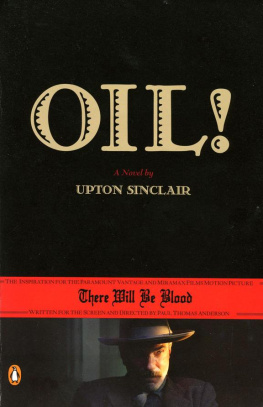Iain Sinclair
Contemporary British Novelists
Series editor:
Daniel Lea
already published
J. G. Ballard
Pat Barker John Brannigan
Jim Crace Philip Tew
Iain Sinclair Brian Baker
Graham Swift Daniel Lea
Irvine Welsh Aaron Kelly
Jeanette Winterson Susana Onega
James Kelman Simon Kvesi
Copyright Brian Baker 2007
The right of Brian Baker to be identified as the author of this work has been asserted
by him in accordance with the Copyright, Designs and Patents Act 1988.
Published by Manchester University Press
Oxford Road, Manchester M13 9NR, UK
and Room 400, 175 Fifth Avenue, New York, NY 10010, USA
www.manchesteruniversitypress.co.uk
Distributed exclusively in the USA by
Palgrave, 175 Fifth Avenue, New York,
NY 10010, USA
Distributed exclusively in Canada by
UBC Press, University of British Columbia, 2029 West Mall,
Vancouver, BC, Canada V6T 1Z2
British Library Cataloguing-in-Publication Data
A catalogue record for this book is available from the British Library
Library of Congress Cataloging-in-Publication Data applied for
ISBN 978 0 7190 6904 8 hardback
ISBN 978 0 7190 6905 5 paperback
First published 2007
16 15 14 13 12 11 10 09 08 07 10 9 8 7 6 5 4 3 2 1
Typeset
by Florence Production Ltd, Stoodleigh, Devon
Printed in Great Britain
by Antony Rowe Ltd, Chippenham, Wiltshire
For the Baker, Vigors and Staples families
Contents
Series editors foreword
Contemporary British Novelists offers readers critical introductions to some of the most exciting and challenging writing of recent years. Through detailed analysis of their work, volumes in the series present lucid interpretations of authors who have sought to capture the sensibilities of the late twentieth and twenty-first centuries. Informed, but not dominated, by critical theory, Contemporary British Novelists explores the influence of diverse traditions, histories and cultures on prose fiction, and situates key figures within their relevant social, political, artistic and historical contexts.
The title of the series is deliberately provocative, recognising each of the three defining elements as contentious identifications of a cultural framework that must be continuously remade and renamed. The contemporary British novel defies easy categorisation and rather than offering bland guarantees as to the current trajectories of literary production, volumes in this series contest the very terms that are employed to unify them. How does one conceptualise, isolate and define the mutability of the contemporary? What legitimacy can be claimed for a singular Britishness given the multivocality implicit in the redefinition of national identities? Can the novel form adequately represent reading communities increasingly dependent upon digitalised communication? These polemical considerations are the theoretical backbone of the series, and attest to the difficulties of formulating a coherent analytical approach to the discontinuities and incoherencies of the present.
Contemporary British Novelists does not seek to appropriate its subjects for prescriptive formal or generic categories; rather it aims to explore the ways in which aesthetics are reproduced, refined and repositioned through recent prose writing. If the overarching architecture of the contemporary always eludes description, then the grandest ambition of this series must be to plot at least some of its dimensions.
Daniel Lea
Acknowledgements
Although the work contained in this book is my own, as are any errors or omissions, every project rests upon the support and help of others, and I would like to express my gratitude here. Firstly, I would like to thank my colleagues in the English department of the University of Chester for their support, where I was allocated study leave to enable progress on this book. I would also like to thank the staff at the libraries at the Universities of Liverpool and Chester for their help in sourcing documents. Friends and colleagues, and their relevant Departments, hosted conferences and seminar papers at which earlier versions of this material was delivered, at the following institutions: the University of Chester, Edge Hill College, Goldsmiths College, University of London, the University of Greenwich and Lancaster University.
Personal thanks must go to the following friends and colleagues for their help and encouragement: Arthur Bradley, Robert Bond, Jenny Bavidge, Paul Newland, Boris Vidovic, Keith Wilson (University of Ottawa), Daniel Lea, Eliot Atkins, Sebastian Groes, and Ed and Sarah for late London nights. Special thanks must go to Alan Wall, who read some of these chapters and made many excellent suggestions, and to Simon Lee, who set me on this road in the first place. I owe a considerable debt of gratitude to Matthew Frost and the editorial team at Manchester University Press for their benign forebearance. Finally, my love and thanks go to Deniz, who put up with all this for far too long.
Introduction: maps of the London Underground
Of course, we dont only find ourselves in situations,
we also make situations. (Raymond Williams)
Situations
Iain Sinclair was born in Cardiff in 1943, and was raised in Maesteg, in Wales. He was, as the jacket blurb tells us, the son of a doctor, and his paternal forebears (father and grandfather were doctors) moved to South Wales from Scotland. He attended Cheltenham College, a public school, then Trinity College, Dublin, during the early 1960s. He then moved to London where he went to film school, before embarking on a succession of labouring jobs (including Trumans brewery in Whitechapel, and Tower Hamlets parks and gardens department), finally becoming a bookdealer, all of which would provide him with some of the materials for his two prose/poem sequences, Lud Heat (1975) and Suicide Bridge (1979), and his first novel, White Chappell, Scarlet Tracings (1987).
This is not to say that Sinclair occupies the position of some kind of provincial naf, still less the patronised, alienated role of a native or unschooled poet such as the Romantic John Clare, who is, it is worthy of note, the subject of Sinclairs Edge of the Orison (2005). Nor is he a poet of the street, wearing his non-establishment attitudes on his sleeve. As we will see in this Introduction, and in the rest of this book, Sinclair does indeed value the figure of the visionary outsider, which may well be connected to his upbringing; however, this book will not pursue a biographical mode of analysis, though it will place Sinclairs work in context and with an eye to chronological development. Sinclairs connection to the outsider is less a political than a literary one, though, as I will argue below, his career is indebted to the politics of the counter-culture of the 1960s. Sinclairs literary antecedents are modernist, and his immediate poetic influences, particularly the Cambridge neo-modernist J. H. Prynne, and the group of writers and artists with whom Sinclair may be said to be associated among them Brian Catling, Doug Oliver, Chris Petit could be characterised as experimental, avant-gardist, or non-mainstream in their orientation and interests.



